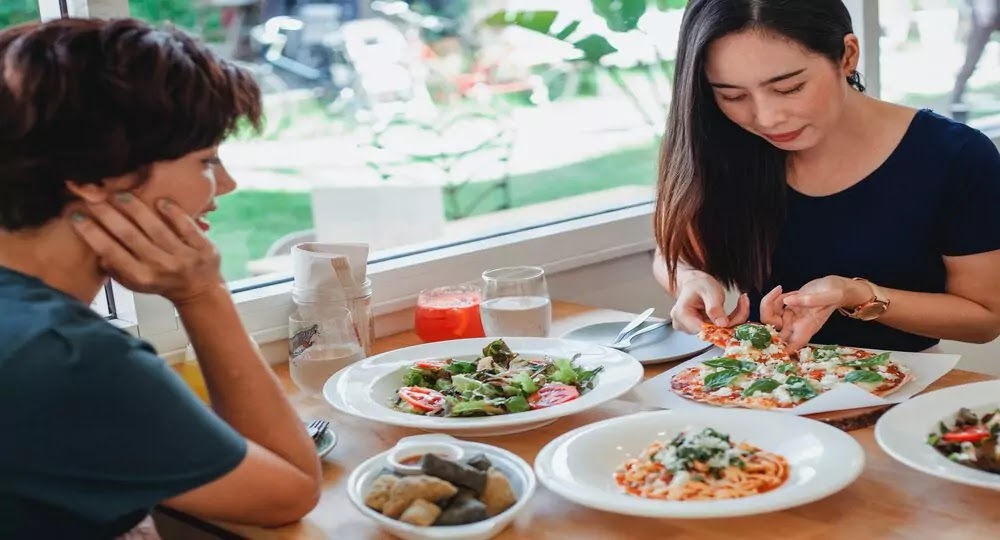Know What’s The Right Diet For You As Per Your Age

When it comes to dieting, people fall prey to books and magazines that promise to eliminate accumulated fat or carbs quickly.
These traps don’t benefit them much as what works best for one may not be best for another.
So, if you are just starting out and don’t want to fall for such
gimmicks then it’s time to evaluate your diet carefully using this short guide.
You
will be able to choose the right diet that not only works best for you
depending on your age but also keeps you healthy.
Let’s know what food items you should consider in your daily diet plan as per your age group.
I promise you will get all the keys to
dieting success in the end so stay tuned.
Right Diet For You As Per Your Age
In Teenage Years (13-19)

This is one of the most important stages as the teen starts
to skip breakfast and fall for junk food.
You need all the essential nutrients
at this stage because your body starts developing and growing.
In general, you
should eat the following daily:
Vegetables and Fruits- eat 2 ½ cups of veggies and 2 cups of fruits
Iron-rich foods- You need iron to sustain body growth. Some of the good sources include iron-fortified bread, cereals, peas, dried beans, spinach, and lean beef.
Protein- you need 5 ½ ounces of protein daily for building muscles and organs. Some of the good sources include poultry, fish, lean meat, nuts, tofu, etc.
Whole Grains- eat 6 ounces of grains daily for optimal energy. It includes whole-grain pasta, bulgur, brown rice, whole grain bread, or breakfast cereals.
Calcium- eat 1300 milligrams of fat-free or low-fat calcium daily. It includes milk, yogurt, fat-free cheese, etc.
In Your 20s

At this age, you make new friends and start dating. So, it
demands conquering the biggest nutritional dilemmas in the first place.
This is
the time when you will be eating more fast food than in your teens.
So, why not
make your fast food healthy by including salads, steamed dumplings, brown rice,
wheat pasta, and frozen veggies. In general, you should eat the following
daily:
Protein- try eating lean steak, eggs, skinless white-meat poultry, tofu, beans, and low-fat dairy to keep yourself full and make muscle.
Potassium- proper heart and muscle function is important. So, it becomes important to consume an appropriate dose of potassium. Add veggies like broccoli, salad, and fruits like bananas, and apples to your diet.
Omega-3 fatty acids- it boosts serotonin levels in your brain which is a feel-good hormone. Omega-3s can be easily added to your diet by including ground flaxseeds, canola oil, and walnuts.
In Your 30s

At this stage, you will find yourself juggling between home
responsibilities, and work.
So, getting hyper tensed is normal in your 30s.
However, you can easily manage it by eating the following:
Folate- it’s important for preventing neural-tube defects that help in making new cells. So, eat foods like asparagus, avocados, broccoli, spinach, chickpeas, and orange juice.
Iron- to avoid getting mentally and physically drained, eat iron-rich foods like soybeans, skinless poultry, cereals, lean beef, and pumpkin seeds.
Phytonutrients- it contains antioxidants that prevent the aging process, heart disease, and the development of cancer.
Some good sources
of phytonutrients include coffee, red wine, dark chocolate, and plants.
In Your 40s

At this time, you will find some time for yourself and it
must be used to improve fitness and health.
The body starts to withdraw
estrogen and you can see changes in various body areas like thighs, hips, and
butts.
You need these foods to strengthen your core:
Calcium- your body absorbs less calcium as you age and this declines bone-building estrogen. That’s why it is recommended to eat supplements and low-fat dairy.
Vitamin D- vitamin D protects against colon and breast cancer, even if it keeps the immune system strong. So, get it as much as possible.
Fiber- it decreases cholesterol, and avoids colon cancer risk. Some of the fiber sources include barley, oats, bran, whole wheat bread, and vegetables.
In Your 50s

The risk of getting heart disease increases in the 50s, so
you should get serious about your health. Try eating antioxidant-rich foods.
For example, pomegranates, blueberries, and red grapes. Also focus on getting
vitamin B12 via lean meats, fortified cereals, grains, fish, and eggs.
In Your 60s, 70s 80s

At this stage, you should try eating meals five to six times
to keep your cholesterol, blood sugar, and triglyceride level healthy.
Also add
protein and bone-building foods to reduce the risk of osteoporosis, and broken
bones.
If you follow the right diet plan as per your age, then you will receive optimal results. Comment us and let us know whether you're following the right diet plan or not.



Wow ! Thanks for gave us a lot of knowledge about it. Thank you so much
ReplyDeleteGlad to hear you got some value from this post, I'm happy to be of help ;) Thankyou so much :)
Delete